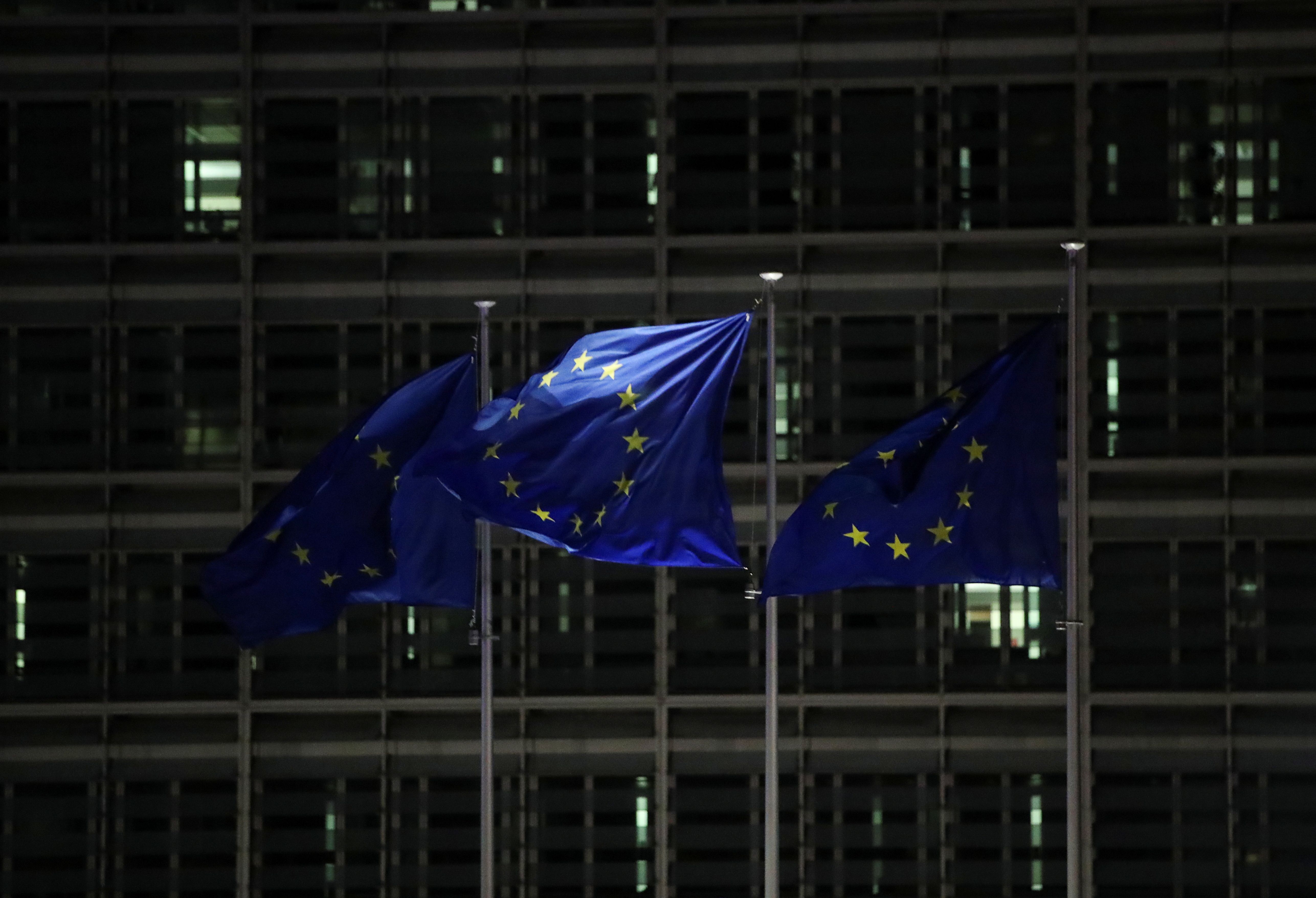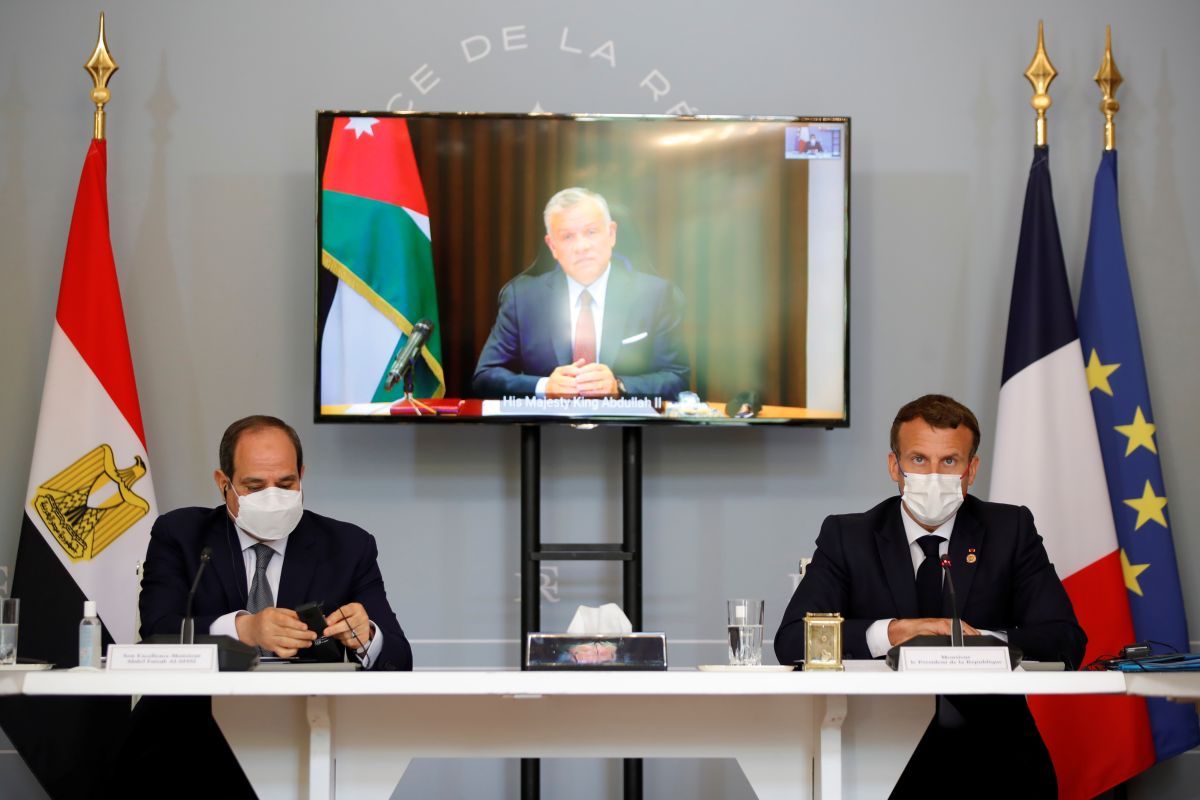West and China Compete for Tech Influence in Arab Persian Gulf States
New technologies are an increasingly important element of the Sino-American rivalry in the Persian Gulf. China has become the preferred partner in this area due to, for example, the dominant role of government (vs. private) investment in the technology sector in both China and the Gulf states. The intensification of cooperation between the Gulf Cooperation Council (GCC) and China in the field of new technologies may increase the influence of authoritarian states in setting technological standards.
.jpg) AHMED YOSRI / Reuters / Forum
AHMED YOSRI / Reuters / Forum
Visions of Innovation
Investments in new technologies initiated mainly by the state occupy a central place in the diversification and transformation strategies of the GCC states, such as the Saudi or Emirati Vision 2030 initiatives. This approach stems from the increasing uncertainty in the energy markets on which these countries rely and from the growing number of young people in the GCC countries. According to the social contract in place in the Gulf monarchies, the state is the main employer of citizens, thus redistributing profits from oil and gas exports. However, demographic changes, the global drive for an energy transformation, and fluctuations in oil prices have threatened the stability of this model. In reaction, the leaders of the GCC countries have recognised new technologies and innovation as pathways to maintaining stability and their respective authoritarian systems of power. Factors included the potential for job creation and prestige associated with the high-tech branch of the economy, which may further spur the interest of Gulf citizens in employment in the private sector.
In turn, in recent years the digital economy has become an increasingly large part of the economies of the GCC countries. In the United Arab Emirates (UAE) from 2012 to 2022, tech’s share of GDP increased from 9.7% to 19.4%. In the Digital Economy Index, which measures the degree of development of the digital economy, Saudi Arabia was ranked 49th in 2010 and by 2020, already 36th in the world. The dominant role of governments in the technological sectors of the Gulf states also allows for the implementation of large-scale, multi-billion dollar projects to attract foreign investment in the domestic tech industry, necessary for the economic transformation. These processes also enable the collection of a huge amount of personal data, facilitated by the wave of digitisation of services as a result of the COVID-19 pandemic.
U.S.-China Rivalry
State domination of the new technologies sector and similar political goals, for example, in the field of digital surveillance, have made it easier for China to increase its influence on this industry in the Gulf monarchies. When China announced its Digital Silk Road (DSR) initiative in 2017 as part of the Belt and Road Initiative (BRI), the UAE and Saudi Arabia signed tech cooperation agreements with China. The DSR is to provide leading Chinese technology companies with access to emerging markets and, in conjunction with BRI investments, facilitate competition with U.S.-based companies to allow the Chinese to dominate the tech innovation industry. An example is the intensive cooperation of the GCC countries with Huawei, which is linked to the Chinese authorities, on key digital infrastructure. Saudi Arabia also commissioned Huawei to build a 1,300 megawatt-hour energy-storage system to power Neom, its flagship urban project. In 2018, the construction of a modular data centre at Dubai Airport, carried out by Huawei, was completed. The company also cooperates with the Dubai Electricity and Water Authority in the construction of fibre-optic infrastructure and monitoring. Other Chinese companies active in the region include Alibaba (cloud computing), Beidou (navigation systems), and Tencent (multimedia and entertainment).
To counteract Chinese influence in the region, the U.S. administration has increased pressure on its allies to limit cooperation with the Middle Kingdom, whose authorities control domestic technology companies. This includes 5G infrastructure built by Huawei in the GCC countries, which pose a potential risk to data security. However, this pressure has not been effective given the independence in economic policy that the Arab monarchies in the Gulf have gained in recent years as a result of foreign policy diversification, an effort that intensified after the U.S. supported regional protest movements in 2011. In response, U.S. activities focus on creating an alternative to Chinese technologies in the Persian Gulf and initiatives bringing Arab monarchies closer to Western partners in the region (e.g., Israel) and around the world (e.g., India). An example is the creation of the I2U2 group (Israel, India, UAE, U.S.), which, during its 2021 summit, declared its members would focus on technological cooperation. In addition, after U.S. President Joe Biden visited Riyadh in June 2022, Saudi Arabia committed to investing in 5G and 6G infrastructure created by U.S. companies, which is also to serve developing countries. In February, the Saudi minister of Communications and Information Technology announced investments by Microsoft and Oracle in the construction of cloud-computing infrastructure in a deal worth $2.1 and $1.5 billion, respectively. In turn, the Emirati G42 launched a fund totalling $10 billion focusing on technological investments in emerging markets, supported by, among others, the American company Silver Lake.
Challenges for the West
The intensification of DSR cooperation with the GCC countries will make it easier for China to increase its influence on the standardisation of new technologies in accordance with the China Standards 2035 strategy. This stems from, among others, the rising internet access rate, which for the GCC countries averages around 90%—much higher than for most countries involved at a similar level of cooperation with China under the BRI, such as Pakistan (36%) or Indonesia (62%). In addition, the GCC countries have stable digital infrastructure, used by a growing young population with developed digital skills.
The increasing participation of Chinese technology companies in the provision of digital infrastructure components, for example, by building data-processing centres, directly threatens the data security of network users in light of these companies’ ties to the Chinese authorities. The Chinese vision of global internet governance is based on government control over data flows, as underlined in the Global Data Security Initiative (GIBD) launched by the Chinese authorities in 2020. In 2021, China and members of the League of Arab States (including the GCC states) launched a regional initiative in line with the initiative’s assumptions, emphasising similar priorities in this area. Such an approach threatens the EU’s efforts to take the lead in establishing digital regulation in its neighbourhood. Such ambitions are evidenced by, for example, the EU’s New Agenda for the Mediterranean of 2021. At the same time, EU countries invest less in research and development (on average 2.27% of GDP) than China (2.43% of GDP), which reduces their attractiveness as potential investors.
The presence of Chinese digital infrastructure in the GCC countries also threatens the dominance of Western military technologies in the Gulf and increases the risk of theft of U.S. and European technical secrets. Gulf monarchies are also recipients of advanced security technology from the U.S. and EU countries. This creates a conflict: U.S. accusations of digital espionage against Huawei contributed to the suspension of a contract for fifth-generation F35 fighters to the UAE at the end of 2021. However, the Emirates chose not to limit cooperation with the company and instead purchased Chinese L-15 fighters in February 2022. China is also helping Saudi Arabia develop its ballistic missile programme.
Conclusions
For GCC state leaders, the dynamic development of the technology industry is a priority and directly related to the intent to consolidate government control over the development of the state and societies. The growing role of China in international cooperation in this area is aimed to help them because of their similar vision for the world order and scepticism of Western ideals of democracy and transparency.
The financial capabilities of the monarchies in the Gulf allow Chinese companies to implement the latest solutions on a scale unattainable in other countries covered by the BRI. This is conducive to China’s activities promoting its concept of data management, for example, in international institutions dealing with the internet, where Western countries have played a dominant role so far. Cooperation between China and the GCC could therefore increase the influence of authoritarian states in setting technological standards, undermining the status of the EU and the U.S. as normative powers. This may jeopardise the process of standardisation based on the values and norms of a liberal market economy, with the dominant participation of the private sector, with democratic institutions and international organisations.
To limit the potential threats arising from China’s cooperation with the GCC, the EU should become involved in promoting alliances between Arab monarchies and other Western partners. Cooperation with Asian democracies that are leaders in new technologies and GCC countries will help disseminate regulations proposed by the EU. Greater investments of EU countries in research and development and the possibility of technology transfer will strengthen the chances of success of such cooperation.





